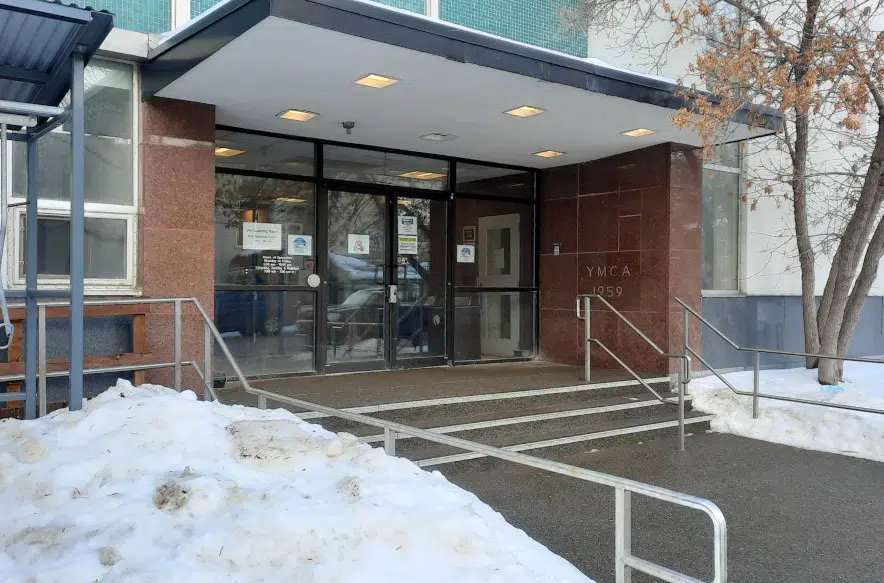As of Monday afternoon, 40 more people in Regina have a roof over their heads.
The new temporary emergency shelter in the downtown core opened its doors, with all the beds already full and with a growing wait list.
The shelter came together to respond to a need in the city as a collaboration between Regina Treaty/Status Indian Services (RT/SIS), the City of Regina, the Government of Saskatchewan, and The Nest Health Centre.
“We have, as you can see,” RT/SIS executive director Erica Beaudin said, gesturing to the room full of people, “many people around in this panel that have been very instrumental in the work that we’ve done here in Regina, whether it’s direct services or indirect services and support.”
Regina Fire and Protective Services and the Regina Police Service played parts as well.
“The Regina Police Service is working together to keep Regina safe, and often for many people, you think of safe from crime, which is part of it, but safe from cold, safe from hunger, safe from all of those social challenges that we often see in our community,” said Chief Evan Bray of the Regina Police Service.
The Co-op Refinery Complex and Sherwood Co-op also joined in, donating money to make sure the shelter will have enough food through the three months it’s open.
The shelter will provide beds, food, counselling and support. It will also store residents’ drugs and weapons, if they have any.
Beaudin was clear that it is not a place to consume drugs, but admitted people may be driven by their addictions to go and use in the community.
Beaudin said they’re putting measures in place outside the building.
“(We’re interested) in ensuring as best as possible that not only is the community safe, but if people are deciding due to their addiction that they are going outside to use, that we’re doing our best in order to ensure that they’re taken care of as well,” explained Beaudin.
This is the second winter in a row RT/SIS has worked with the city to put together a shelter. Beaudin said last year more than 300 people came through the doors; half of those are still working with the group, but Beaudin said others have died.
“Due to circumstances (or) addictions, we have lost people and it’s in their memory and their honour that we continue to work harder and better, hopefully individually and as agencies and together,” said Beaudin.
There are also success stories in there of people who’ve got jobs and homes, and been reunited with family.
The shelter is set to close at the end of April. But Beaudin and the city are working on finding a more permanent location to be up and running for next winter.











